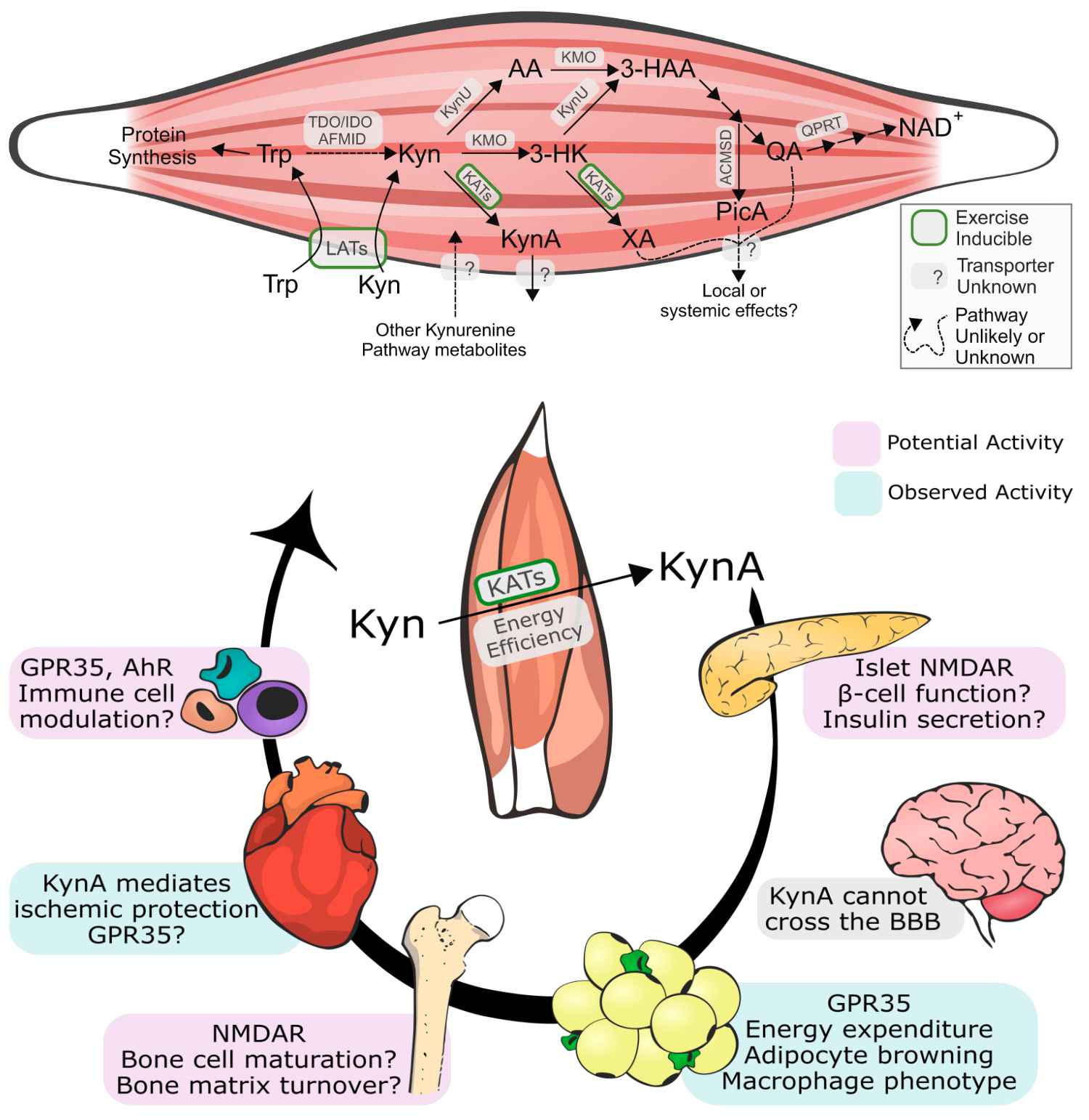The whole body benefits of exercise

Tryptophan catabolism through the kynurenine pathway generates a variety of bioactive metabolites. Physical exercise can modulate kynurenine pathway metabolism in skeletal muscle and thus change the concentrations of select compounds in peripheral tissues and in the central nervous system. Here we review recent advances in our understanding of how exercise alters tryptophan-kynurenine metabolism in muscle and its subsequent local and distal effects. We propose that the effects of kynurenine pathway metabolites on skeletal muscle, adipose tissue, immune system, and the brain suggest that some of these compounds could qualify as exercise-induced myokines. Indeed, some of the more recently discovered biological activities for kynurenines include many of the best-known benefits of exercise: improved energy homeostasis, promotion of an anti-inflammatory environment, and neuroprotection. Finally, by considering the tissue expression of the different membrane and cytosolic receptors for kynurenines, we discuss known and potential biological activities for these tryptophan metabolites.
The Kynurenine connection: how exercise shifts muscle tryptophan metabolism and affects energy homeostasis, the immune system, and the brain
Martin K, Azzolini M, and Ruas JL
Am. J. Physiol. Cell Physiol. 2020. 318: C818–C830


